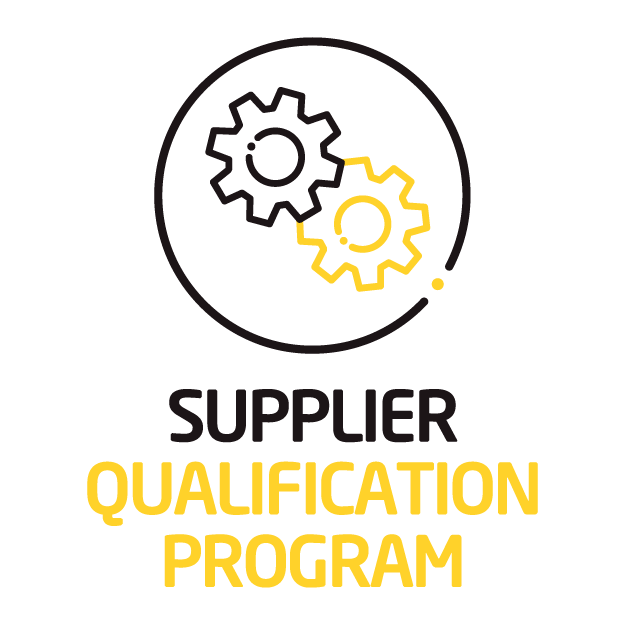How SQP Audit Protects Your Brand from Quality Risks
- Lion Paper Team

- Jul 5, 2025
- 4 min read
Updated: Aug 21, 2025
Quick Content Reach:
What Stationery Buyers Fear Most
If you're a stationery buyer or sourcing manager, you know the nightmare: A beautifully designed notebook arrives with mismatched colors, wrong logos, loose binding, or even a delayed shipment that ruins a launch. One mistake is enough to damage your brand’s reputation, cause customer complaints, and lead to costly returns. That’s why “quality risk” isn't just a buzzword—it’s the most expensive hidden cost in your supply chain.

What is an SQP Audit?
SQP stands for Supplier Qualification Program, a factory audit program developed by UL (Underwriters Laboratories). It focuses on five key customer-centric values:
Quality Systems
Facility Conditions
Product Safety Management
Social Accountability
Security
Unlike traditional audits that only look at compliance or certifications, SQP dives deep into real factory conditions and evaluates how reliable your supplier is—not just on paper, but in actual daily operations.

How SQP Adds Value to Buyers: The 5 Key Protections
1. Ensures Reliable Quality Systems
SQP audits verify that the factory has clear quality checkpoints, SOPs, and corrective actions for each production stage. That means fewer surprises and better control.
2. Improves Supply Chain Transparency
With real-time records and audit reports, buyers gain visibility into how each notebook or journal is produced—from raw material to shipment.
3. Verifies Safety and Compliance
SQP assesses whether the supplier complies with international safety standards like CPSIA, Prop 65, EN71, and ensures worker protection and factory hygiene.
4. Reduces Long-Term Risk & Cost
Fewer defects, better planning, and no need for urgent fire-fighting reduces your total cost of ownership over time.
5. Boosts Brand Trust & Retailer Acceptance
Retailers like Walmart, Target, Staples, and Muji favor vendors with a passed SQP report. It gives your brand stronger leverage in negotiations and tenders.

Why Global Buyers Prefer SQP-Certified Suppliers
Because they don’t just want cheap. They want certainty—and SQP gives them that. Whether sourcing from Asia, the Middle East, or Africa, buyers increasingly include "SQP passed" as a prerequisite in RFQs (Requests for Quotation). That’s because they want:
Predictable lead times
Quality consistency
Traceability
Lower return rates
Safer production practices
How Lion Paper Practices SQP to Protect Your Brand
Lion Paper has passed SQP audit and we’ve fully aligned our quality control system with SQP standards:
✅ Weekly QC planning meetings ensure timely coverage
✅ Each inspector wears a bodycam to record full inspection traceability
✅ All notebooks go through 30% mid-term checks and 80% pre-shipment inspections
✅ Our factories and products passed ISO9001, BSCI, Prop 65, CPSIA, SMETA, GSV, FSC and more
✅ We invest in $20,000+ worth of smart production equipment to automate and stabilize processes
✅ Each worker is trained for 1–2 weeks before entering the production line
✅ We provide fair wages and welfare to our staffs. In production, we offer cut-resistant gloves and protective gear to every worker in the workshops.

With these systems, we help protect your brand before problems arise—not after.
Conclusion
Choosing a reliable supplier like Lion Paper means more than compliance. It means confidence—confidence in your supply chain, your product quality, and your brand’s reputation. Don’t wait for a quality failure to take action. Choose a supplier who takes your risks seriously from day one.
👉 Contact us today to start your next notebook project with a factory that gets quality right from the beginning.
FAQs:
Q1: What is an SQP audit?
A: An SQP (Supplier Qualification Program) audit is a structured factory assessment developed by UL to evaluate a supplier's ability to meet quality, safety, social responsibility, and security requirements. It goes beyond certifications and looks into the operational effectiveness of the entire supply chain.
Q2: Why is SQP audit important for notebook buyers?
A: Because one poor-quality shipment can damage your brand reputation, lead to costly returns, or get rejected by retail chains. An SQP audit ensures that your supplier is not only capable but also consistent in delivering safe, compliant, and high-quality products.
Q3: How does SQP differ from regular factory audits?
A: Regular audits often focus on documentation. SQP emphasizes real-world performance: how well processes are implemented, how risks are managed, and how quality is enforced on the ground. It's a deeper and more practical check.
Q4: Is SQP mandatory for notebook suppliers?
A: No, but many large buyers and retailers require it as part of their sourcing policy. While it's not mandatory industry-wide, SQP is quickly becoming a preferred standard for premium supply chains.
Q5: How does SQP reduce supply chain risk?
A: By auditing real operations, SQP identifies hidden problems before they escalate—like poor planning, inconsistent SOPs, or lack of quality gates. This allows buyers to avoid last-minute surprises or large-scale defects.
Are you looking for a reliable manufacturer? Reach out to Lion Paper for a free quote and consultation. Let’s collaborate on creating custom writing paper products that will set your brand apart from the competition.




Comments